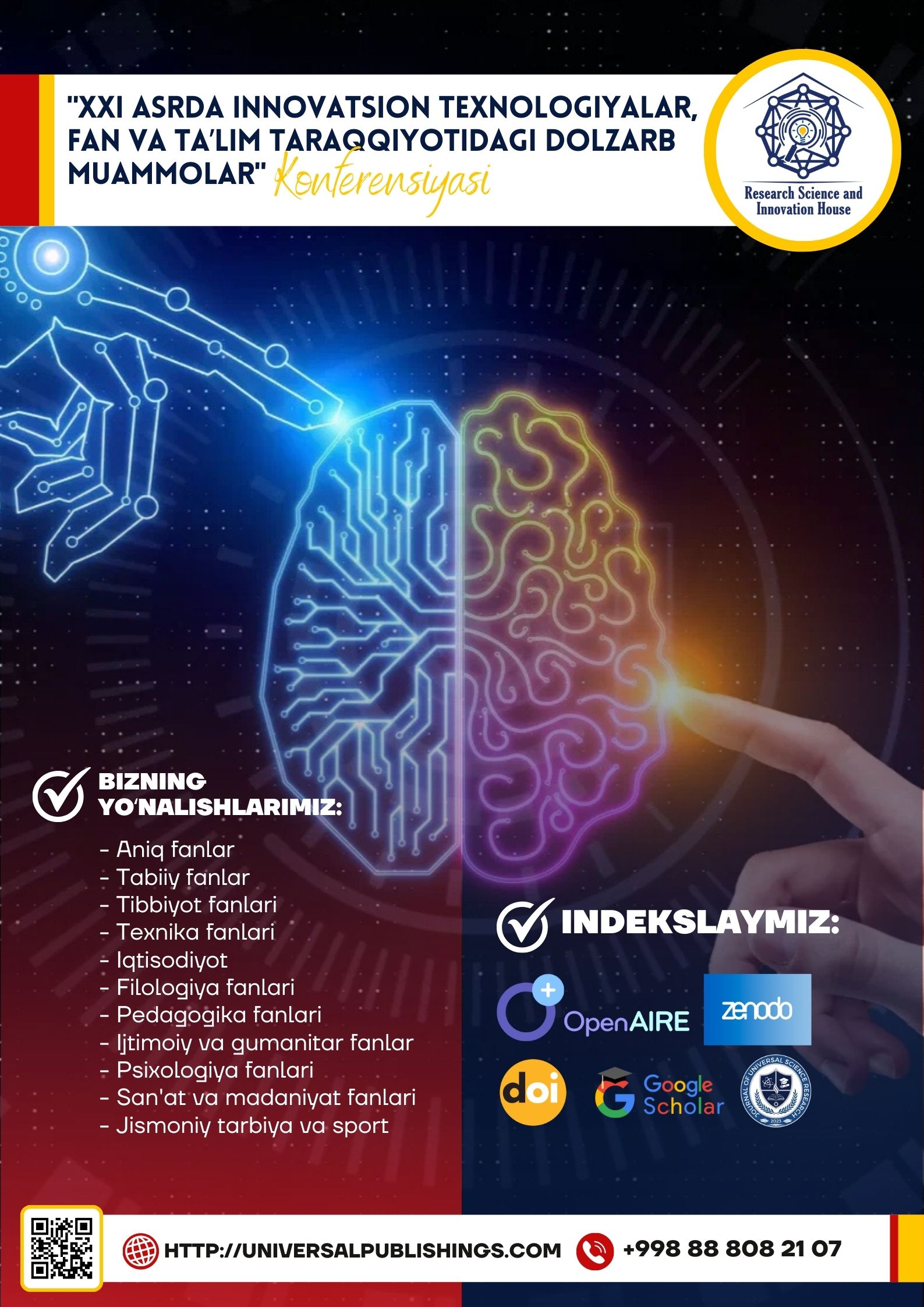Abstract
This article explores the multifaceted role of adverbs in language, focusing on their grammatical categories and theoretical underpinnings. It begins with a definition of adverbs and their core functions, followed by a detailed examination of their semantic, syntactic, morphological, and positional classifications. The discussion extends to advanced aspects such as adverbial interactions, sentence transformations, cultural variations, and historical evolution. Challenges like ambiguity, overlap with other grammatical categories, and semantic gradience are also addressed. The article concludes with insights into contemporary linguistic research on adverbs, including corpus analysis, psycholinguistics, and computational linguistics, highlighting their significance in understanding and enhancing communication.
References
1. Crystal, D. (2004). The Cambridge Encyclopedia of the English Language. Cambridge University Press.
2. Greenbaum, S., & Quirk, R. (1990). A Student's Grammar of the English Language. Longman.
3. Huddleston, R., & Pullum, G. K. (2002). The Cambridge Grammar of the English Language. Cambridge University Press.
4. Leech, G. N. (1981). Semantics: The Study of Meaning. Penguin Books.
5. Quirk, R., Greenbaum, S., Leech, G., & Svartvik, J. (1985). A Comprehensive Grammar of the English Language. Longman.
6. Swan, M. (2016). Practical English Usage (4th ed.). Oxford University Press.
7. Yule, G. (2010). The Study of Language (4th ed.). Cambridge University Press.
8. Teshaboyeva, N., & Mamayoqubova, S. (2020). COMMUNICATIVE APPROACH TO LANGUAGE TEACHING. In МОЛОДОЙ ИССЛЕДОВАТЕЛЬ: ВЫЗОВЫ И ПЕРСПЕКТИВЫ (pp. 409-414).
9. Teshaboyeva, N. (2020). LINGUISTIC PERSONALITY, ITS STRUCTURAL CHARACTERISTICS IN THE NEW PERSPECTIVE DIRECTIONS. In МОЛОДОЙ ИССЛЕДОВАТЕЛЬ: ВЫЗОВЫ И ПЕРСПЕКТИВЫ (pp. 415-420).
10. Teshaboyeva, N. Z. (2019). TEACHING ENGLISH THROUGH LITERATURE INTESL AND TEFL CLASSROOMS. In СОВРЕМЕННЫЕ ТЕХНОЛОГИИ: АКТУАЛЬНЫЕ ВОПРОСЫ, ДОСТИЖЕНИЯ И ИННОВАЦИИ (pp. 82-84).
11. Хидирова, Д., & Тешабоева, Н. (2022). Pedagogical conditions for the development of the healthy thinking in students. Zamonaviy innovatsion tadqiqotlarning dolzarb muammolari va rivojlanish tendensiyalari: yechimlar va istiqbollar, 1(1), 120-122.
12. Gaybullayeva, N. D. K., & Kizi, T. N. Z. (2022). THE ROLE OF INNOVATIVE METHODS FOR LISTENING COMPREHENSION IN TEACHING LANGUAGE LEARNERS FOREIGN LANGUAGES AND MAINLY ENGLISH. Central Asian Research Journal for Interdisciplinary Studies (CARJIS), 2(10), 8-10.
13. Teshaboyeva Nafisa Zubaydulla qizi, Jurayev Muhammadrahim Murod o’g’li, & Mamirova Munisa Rajab qizi. (2021). Language Learning Culturally and the Role of Literature in Teaching Process. Central Asian Journal of Theoretical and Applied Science, 2(3), 1-5. Retrieved from https://www.cajotas.centralasianstudies.org/index.php/CAJOTAS/article/view/84
14. Teshaboyeva, N. (2023). THE IMPORTANCE OF TOURISM IN PRESENT DAY. Журнал иностранных языков и лингвистики, 5(5).
15. Teshaboyeva, N. (2023). THE MODERN INNOVATIVE TECHNOLOGIES IN TEACHING FOREIGN LANGUAGES. Журнал иностранных языков и лингвистики, 5(5).
16. Teshaboyeva, N. Z. (2023, November). Adjective word group and its types. In " Conference on Universal Science Research 2023" (Vol. 1, No. 11, pp. 59-61).
17. Teshaboyeva, N. Z. (2023, November). Modifications of Consonants in Connected speech. In " Conference on Universal Science Research 2023" (Vol. 1, No. 11, pp. 7-9).
18. Teshaboyeva, N., & Rayimberdiyev, S. (2023, May). THE IMPORTANCE OF USING MULTIMEDIA TECHNOLOGY IN TEACHING ENGLISH CLASSES. In Academic International Conference on Multi-Disciplinary Studies and Education (Vol. 1, No. 8, pp. 149-153).
19. Nafisa, T., & Marina, S. (2023). TEACHING AND LEARNING OF ENGLISH VOCABULARY IN TESL AND TEFL CLASSROOMS. International Journal of Contemporary Scientific and Technical Research, 465-469.

